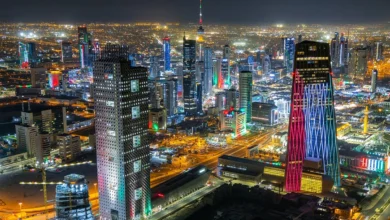Kuwait lifts ownership ban on expatriates, expanding investment possibilities
The Ministry of Commerce and Industry will allow Article 18 residency holders to be registered as partners or managing partners in the commercial register.

• The Ministry of Commerce and Industry’s ban on company ownership for residents under Article 20, 22, and 24, including domestic workers, remains in effect. These individuals must either sell their shares or transfer to an Article 19 visa.
• The lifting of the registration ban resumes accepting applications for new companies with Article 18 visa holders as shareholders, following previous regulations on non-Kuwaitis’ ownership.
• Joint committees are being formed to set final guidelines for non-Kuwaitis’ ownership, including deadlines for disposing of non-compliant properties. About 10,000 expatriate workers with Article 18 residencies hold partner or managing partner roles in around 45,000 company licenses.
Officials at the Ministry of Commerce and Industry have been directed to reopen the ministry’s automated systems. This move allows Article 18 residency holders employed by companies or institutions to be registered as partners or managing partners and listed in the commercial register, according to sources from Al Rai newspaper.
The sources revealed that the ban imposed by the Ministry of Commerce and Industry last month, which prohibits residents from owning shares in companies unless their visa falls under Article 19, still applies to those under Article 20, 22, and 24. This specifically includes domestic workers, who must dispose of their ownership in companies if they are shareholders, or transfer their residency to Article 19.
Article 18 and 19 visa holders to resume business activities this week
The sources expect the ministry’s regulations to resume accepting requests and processing exclusions for residents this week. They noted that once the systems are activated, existing commercial entities with shareholders holding Article 18 and 19 visas will be allowed to establish and renew their businesses, as well as make amendments to all companies and institutions, in accordance with the procedures that were in place before the ban was issued.
The sources noted that the lifting of the ‘registration’ ban also includes the resumption of accepting applications for the establishment of new companies that include residents holding Article 18 visas among their shareholders, in accordance with the previous regulations governing non-Kuwaitis’ ownership in companies and institutions.
New regulatory directives
The sources noted that according to this directive, the clause requiring partner agreement for existing and new licenses, where one of the partners or managers falls under Article 18, will be temporarily suspended. They explained that the new regulatory directive will remain in effect until further notice, specifically until new regulatory controls are issued.
The sources stated that coordination is underway with the Public Authority for Manpower to review the controls and regulations governing non-Kuwaitis’ ownership in companies and commercial institutions. They noted that joint committees are being formed to develop final guidelines on the return of ownership conditions for non-Kuwaitis, including establishing a binding legal deadline for the disposal of properties that do not comply with the anticipated regulations.
Regulatory and legal procedures
The sources noted that, according to information previously reported by the ministry’s Public Authority for Manpower, there are about 10,000 expatriate workers in the private sector; the majority of them hold Article 18 residencies. These workers have obtained the status of partner or managing partner in approximately 45,000 licenses for existing companies and institutions.
The sources explained that these figures highlight the need for regulatory measures to ensure the rights of all parties, including current shareholders, considering that they have obtained commercial licenses in accordance with existing regulatory and legal procedures.
The sources emphasized that, in light of the government’s commitment—whether through the ministry or the Public Authority for Manpower—to organizing commercial licenses with updated regulations and enforcing various laws related to labor and foreign investment, specific controls and mechanisms will be implemented for expatriate workers holding residency under Article 18.













